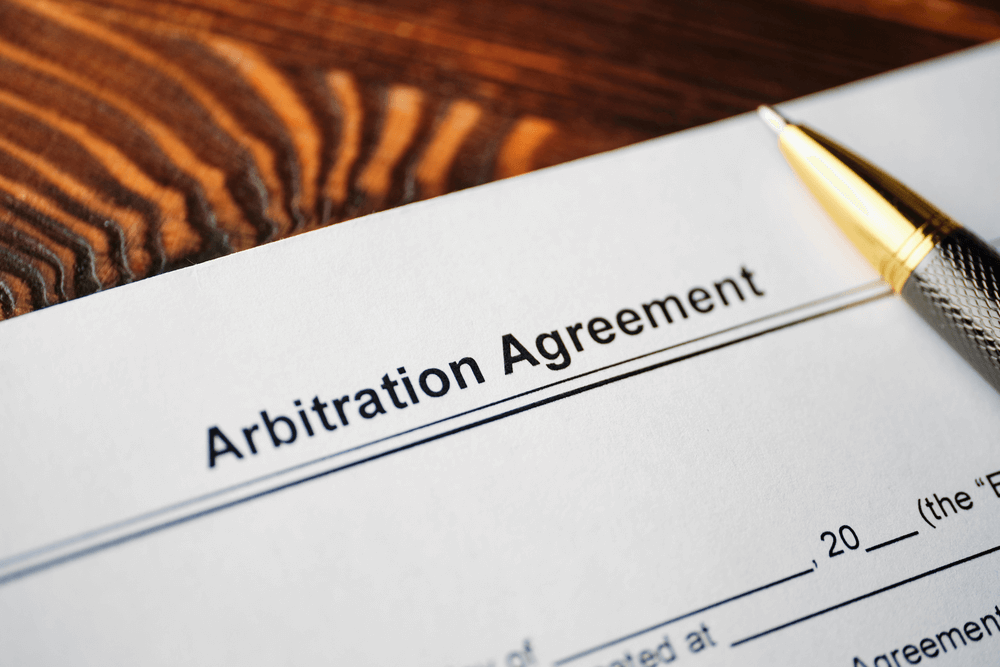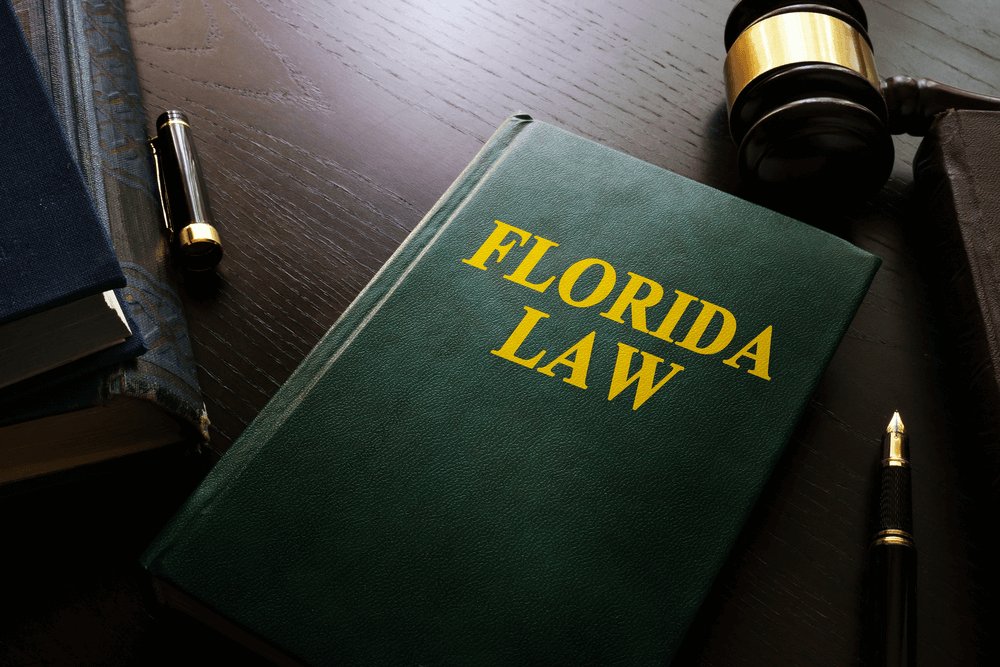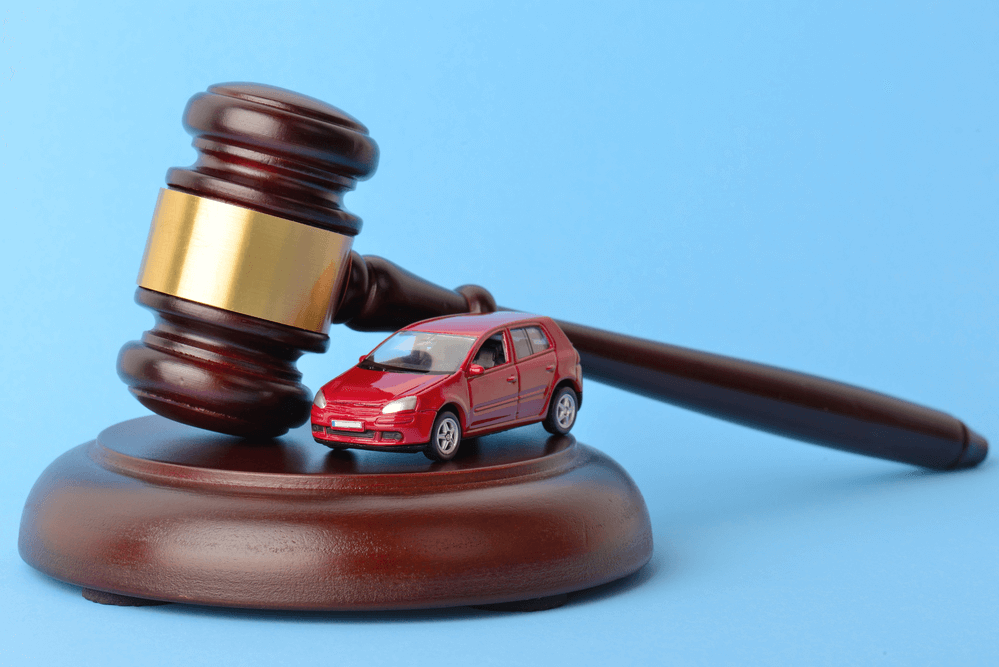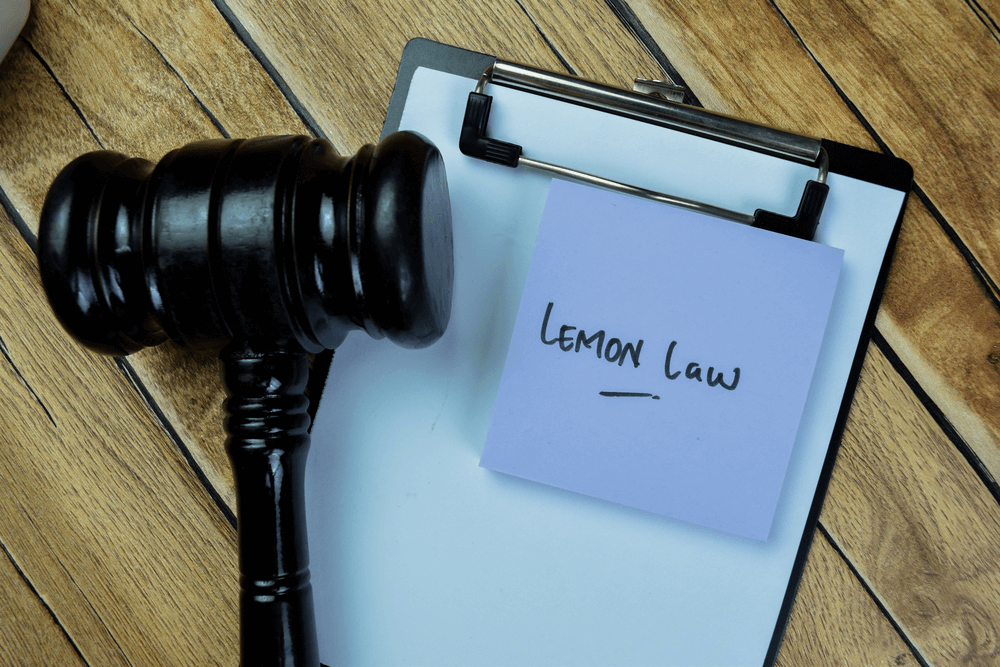Table of Contents
Lemon Law Attorney
Subpar cars that stop running within a few months or are constantly malfunctioning have to be replaced or refunded by the manufacturer. “Lemon laws” refer to the set of local and federal laws that protect consumers who have bought such a defective vehicle. Lemon law attorneys are professionals who help individuals to reclaim their losses. If you’re affected by this consumer protection problem, call Jonathan E. Schwartz, an experienced lemon law attorney, to schedule a free case review and file a lemon law claim.
What Do Lemon Law Attorneys Do?
Lemon law attorneys in Florida specialize in assisting consumers who have purchased defective vehicles, commonly referred to as “lemons.” These attorneys play a vital role in helping clients navigate the complexities of the lemon law in Florida. They evaluate the details of each case, providing legal advice and guidance to determine if the client has a valid claim.
Lemon law lawyers represent clients in negotiations with manufacturers or dealerships, aiming to secure a fair settlement that may include a replacement vehicle, refund, or repair costs. In cases where a satisfactory settlement cannot be reached, they file lawsuits and represent their clients in court. They ensure the necessary legal requirements are met, gather documentation and evidence, and advocate for their clients’ rights as consumers. Their expertise and knowledge of Florida’s lemon law enable them to seek appropriate compensation.

Free Case Evaluation
During the initial free consultation with Jonathan D. Schwartz, he will gather essential information to evaluate your case. He will typically discuss the details of the vehicle’s defects, the repair history, and any communication you’ve had with the manufacturer or dealership. He may also inquire about the purchase price or your lease agreement, warranty coverage, and your desired outcome.
Jonathan listens attentively to your concerns, asks relevant questions, and assesses the strength of the case. Based on the information provided during the free case review, Jonathan provides legal advice, explains your rights under the lemon law, and outlines potential courses of action. The initial consultation serves as a crucial opportunity for Jonathan to understand your situation and determine the best approach moving forward.
Legal Guidance
Legal guidance encompasses the advice, direction, and support provided by a lawyer to their clients. A good lawyer will guide you by offering a comprehensive understanding of the relevant laws and legal procedures that apply to your specific situation. They provide clarity on your rights, responsibilities, and available options.
A skilled attorney will assess your case, analyze the strengths and weaknesses, and develop a strategic plan tailored to achieve your desired outcome. They will explain potential risks, help you make informed decisions, and provide recommendations based on their expertise and experience. Additionally, a good lawyer will offer ongoing support, communicate effectively, and advocate for your best interests throughout the legal process.

Lawsuit Representation
If a satisfactory settlement cannot be reached through negotiations or alternative dispute resolution methods, your lawyer will represent you in court as part of the lawsuit process. This becomes necessary when the case needs to be resolved through litigation. The lawyer will prepare and file the necessary legal documents, such as complaints and motions, and present your case before a judge or jury.
They will gather and present evidence, interview witnesses, cross-examine opposing witnesses, and make persuasive arguments on your behalf. Throughout the court proceedings, the lemon law attorney will use their litigation skills and advocacy abilities to present a strong case and work towards a favorable outcome for you.

What Is Arbitration?
Arbitration is an alternative to going to court for resolving disputes. It involves presenting your case to an impartial third party, called an arbitrator, who will review the evidence and make a decision that is binding on both parties.
It offers a streamlined and less formal process compared to a traditional courtroom trial, providing a potentially faster and more cost-effective means of resolving conflicts. Arbitration can be a viable option for seeking a lemon law resolution outside the court system, offering a quicker and more efficient way to resolve disputes related to your vehicle.
Arbitration for Lemon Law Cases
There are two potential arbitration programs available to you in Florida. If your vehicle’s manufacturer has a state-certified arbitration program, you should start by submitting your dispute there. Check your owner’s manual or manufacturer’s warranty for information on whether they have such a program. State certification means the program meets specific federal and state requirements, even if it’s not hosted by the state of Florida.
If the manufacturer doesn’t have a certified program or a decision isn’t reached within 40 days, you can escalate your case to the Florida New Motor Vehicle Arbitration Board for further resolution. It’s important to ensure that the manufacturer is held accountable for their responsibility to you.

Who Can File a Lemon Law Case?
Lemon law rights apply primarily to original car owners or lessees. Those who have lemon vehicles registered to their name can file a lemon law case. If the lemon car is transferred to another person within the Lemon Law Rights Period, they are also protected. Additionally, anyone who is entitled by the warranty’s terms to enforce its obligations is covered.
It’s important to note that subsequent owners can make lemon law claims if the lemon vehicle is transferred between consumers during the Lemon Law Rights Period, which typically spans 24 months from the original delivery. This ensures that individuals who buy a defective vehicle and meet the specified criteria have the opportunity to enforce their rights under the lemon law.

What About Members of the Armed Forces?
Active duty members of the U.S. Armed Forces can benefit from the protections offered by the Florida Lemon Law. This applies if the vehicle was bought during their stay or residence in Florida, or if they currently reside in the state when filing a claim.
New Vehicles
The Florida lemon law protects you when you buy a new car or truck. It applies to vehicles sold in Florida that are intended for transporting people or goods. This includes not only brand-new cars and trucks but also demo vehicles and certain types of recreational vehicles and lemon RVs.
If you’re leasing a car and you, as the lessee, are responsible for repairs, the lemon law covers you, too. It’s important to note that the law doesn’t extend to vehicles designed for off-road use, those that operate solely on tracks, motorcycles, mopeds, or the living facilities of recreational vehicles.

What About Certified Pre-Owned Cars?
Unfortunately, certified pre-owned vehicles aren’t covered under the lemon law. That’s why you have to be extremely careful when purchasing a used vehicle. Always inspect the car thoroughly and make sure you know its history.
Reasonable Number of Repair Attempts
You can’t claim that you own a lemon car if the first repair attempt fails. Instead, you have to make a reasonable number of repair attempts, usually at least three, before you can make a claim. This is true of warranty repairs and other repairs.
What Is the Final Repair Attempt?
Once you’ve experienced three unsuccessful attempts to fix the same issue with your vehicle at your local repair shop, it’s time to take action. You’ll need to provide written notice to the car manufacturer, making them aware of the persistent nonconformity. Be sure to send the notice via registered or express mail to ensure it’s properly documented.
After the auto manufacturer receives your notice, they have 10 days to respond. Their response should offer you the opportunity to have the lemon vehicle repaired at a reasonably accessible repair facility. They should also provide you with a reasonable timeframe to schedule the repairs after you’ve received their response. By following these steps, you can ensure that your concerns are addressed and that the necessary repairs are made promptly.

Time at the Dealership
If you find yourself in a situation where your brand-new car has been out of service for a cumulative total of 15 or more days due to repair of nonconformities by the manufacturer or their authorized service agent, your vehicle might be considered a lemon. You’ll need to provide written notice to the manufacturer, letting them know about the extended downtime.
Once the car company receives your notice, they have the opportunity to inspect or repair the vehicle to address the issues. This step ensures that the manufacturer is aware of the situation and can take appropriate measures to resolve the problems you’re facing with your vehicle.

Reporting the Issue Early
The lemon law covers you for a period of 24 months starting from the day you received your new vehicle. Once your car meets the above-named criteria, reach out to a lemon law attorney as soon as possible and file your claim.
What Issues Are Covered?
Under lemon laws, vehicle nonconformities are covered. Nonconformities are defined as defects or conditions that substantially impair the use, value, or safety of a vehicle. It’s worth noting that the term “condition” refers to a broad issue, such as a vehicle failing to start or running hot, which could be linked to a defect in multiple parts. The lemon law requires the repurchase or replacement of the vehicle only if the nonconformity prevents it from meeting the terms of the manufacturer’s warranty.
What Issues Aren’t Covered?
Defects or conditions resulting from accidents, abuse, neglect, or modifications by individuals other than the auto manufacturer or its authorized service agent are not typically covered under the lemon law. If you’ve tampered with your vehicle by changing the odometer reading, removing safety features, or altering the emissions control systems, you are also no longer covered under lemon laws.
What Is the Magnuson-Moss Warranty Act?
The Magnuson-Moss Warranty Act is a federal law that governs warranties and offers enhanced consumer protection. It sets standards for warranties and provides legal recourse in case of warranty violations. The Act requires manufacturers and sellers to provide clear and detailed warranty terms, including any limitations or exclusions.
It prohibits deceptive warranty practices, such as tying warranties to specific repair facilities or products. If you find that your vehicle doesn’t meet the lemon law criteria, you can still contact lemon law attorneys because you might be covered under this federal lemon law.

How to Make a Lemon Law Claim
Making a lemon law claim requires careful steps to ensure your rights are protected. First, gather all documentation related to the purchase, repair attempts, and warranty. Familiarize yourself with the specific lemon law in your area. Next, notify the manufacturer in writing about the defect and give them an opportunity to fix it.
If they fail to do so, consider seeking legal assistance from a lemon law firm. An experienced lawyer can guide you through the process, assess the strength of your claim, negotiate with the manufacturer, or file a lawsuit if necessary. Their expertise is invaluable in maximizing your chances of a successful lemon law claim.

When to Call Your Lawyer
Before contacting your lemon law attorney, it’s generally advisable to give the manufacturer an opportunity to address the issue and provide a remedy. Notify the manufacturer about the problem, allowing them a reasonable time to attempt repairs or offer a resolution. If they fail to resolve the matter satisfactorily, or you encounter delays, seek legal assistance.
It’s important not to delay reaching out to your lawyer because lemon law claims have strict time limitations. Waiting for more than 24 months may result in the loss of your ability to make a valid lemon law claim. Acting promptly and consulting with a lemon law attorney will help ensure you protect your rights and pursue a successful claim.

What to Bring to the Practice
Come prepared with essential documents and information related to your lemon law case. These items will help the attorney assess the strength of your claim and accurately guide you. Provide your lemon law firm with copies of the purchase agreement or lease contract for your vehicle. These documents outline the terms and conditions of the transaction, including warranties and any relevant provisions.
Gather all records of repairs, maintenance, and service performed on your vehicle. This includes invoices, work orders, and receipts from authorized repair facilities. These documents establish a history of the attempts made to fix the vehicle’s nonconformities. Additionally, bring the vehicle’s documentation, information about your replacement vehicle and repair order, and copies of any correspondence or communication you’ve had with the manufacturer, dealership, or their representatives.

Is There a Lemon Law Fee?
There is indeed a lemon law fee, but it is minor. Car dealers are required to collect a $2.00 motor vehicle warranty fee alongside the other registration fees from buyers or lessees.
It must be collected at the time of sale or lease. The fee ensures compliance with lemon law regulations and helps ensure consumer protection when purchasing or leasing a vehicle.
Do I Need an Attorney?
Many consumers believe that they can file their own lemon law cases. Unfortunately, this often leads to subpar results because Florida lemon laws are complex and involved, and individuals don’t always fully understand their legal rights. Car manufacturers are not above taking advantage of this.
Lemon law attorneys can be extremely helpful since they have a wealth of knowledge about lemon laws. They can quickly and accurately analyze the key facts of your case and help you get a great settlement. They also reduce the stress associated with your lemon law claim because they take over the negotiations with the manufacturer. A good lemon law firm almost always offers a free consultation, so you don’t have to spend money to find out more.

Why Choose a Specific Lemon Law Lawyer?
Lemon law attorneys have a much greater knowledge of consumer protection laws than the average lawyer. Generalists might be able to help you, but there’s no guarantee that they’ll fully understand all the relevant local and federal regulations. If you’re struggling with a lemon law-related case, it’s best to contact someone who specializes in this field.
Why Choose Jonathan D. Schwartz?
Jonathan has over 20 years of experience working with problem vehicles and lemons. He is passionate about consumer protection, and he has helped countless individuals to recover their losses. As an extremely knowledgeable lemon law attorney, he will guide you through the entire process and do everything within his power to help you succeed.
The best way to get started is to reach out to him and ask for your free case review. Make sure to schedule your free consultation as soon as possible for the best results.
What Are the Most Common Outcomes?
If you can prove that a reasonable number of repair attempts have been made and that your vehicle has been out of action for more than a few days, you’re likely to achieve a favorable settlement. If the manufacturer refuses to offer you the required compensation or a replacement vehicle, you can take your lemon case to court.
Repurchase or Replacement
As long as your vehicle meets the guidelines, your lemon law claim will result in the repurchase or replacement of your owned or leased car. The manufacturer pays for your monthly payments, finance charges, and the down payment you provided when you purchased your car.
They might also pay for your rental cars if you had to use a different vehicle while your lemon was being repaired. However, it’s important to note that lost wages and other costs associated with the loss of your vehicle’s function aren’t usually covered.
Repurchase of an Owned Vehicle
Under the Florida lemon law, when an owned vehicle is repurchased, the manufacturer is required to reimburse the consumer for their losses. These include the purchase price of the vehicle, which is the total amount paid for it, including any trade-in value. Collateral charges, such as sales taxes, title charges, and additional repair attempts or items installed by the manufacturer or agent, are also refundable.
Additionally, reasonably incurred incidental charges, which are costs directly caused by the vehicle’s nonconformity, are eligible for reimbursement. In simpler terms, you are entitled to a refund that covers the vehicle’s price, additional charges, and related expenses resulting from the nonconformity.
Repurchase of a Leased Vehicle
When leased vehicles are repurchased under the Florida lemon law, the manufacturer must refund the lessee for various expenses. This includes the lessee’s total deposit and rental payments made to the lessor for the leased vehicle. Collateral charges like sales taxes, title charges, and other fees incurred when acquiring the vehicle are also refundable.
Additionally, the lessees of the vehicle qualify for reimbursement of reasonable costs directly caused by the vehicle’s issues, known as reasonably incurred incidental charges. In other words, the lessee is entitled to get their money back for the payments, charges, and expenses related to the leased vehicle if it qualifies under the lemon law.

How to Avoid Buying a Lemon
Lemon law attorneys can help you to successfully reclaim your losses if you’ve bought a lemon. Although the process is efficient and usually successful, it can still cause some discomfort because you have to spend time fighting for your legal rights. The best way to prevent problems is to do your research and test drive new cars before you purchase them.
Do Your Research
To avoid lemon cars, conducting thorough research prior to your purchase is essential. Start by researching the make, model, and year of the vehicle you’re interested in. Look for reviews, ratings, and common issues associated with that specific model. Check the vehicle’s safety ratings and recall history.
Additionally, consider the vehicle’s fuel efficiency, maintenance costs, and resale value. Take the time to compare prices and financing options from different dealerships. Don’t forget to read the fine print of warranties and understand what’s covered. By doing your homework, you’ll make an informed decision and decrease your chances of having to file a lemon law claim.
Get a Vehicle History Report
Never buy a used car without getting the vehicle history report first. A vehicle history report is a comprehensive record of a vehicle’s past, including ownership history, past repair orders and warranty repairs, accident records, title status, and other important information. It is crucial because it provides valuable insights into the vehicle’s condition, potential issues, and helps buyers make informed decisions, ensuring they are aware of any red flags or hidden problems before purchasing a used car.
Inspect and Test Drive the Car
Inspecting and test-driving the car is an essential step before making a purchase. When inspecting, carefully examine the vehicle’s exterior, interior, and engine compartment for any signs of damage, wear, or poor maintenance. Pay attention to the tires, brakes, and suspension.
During the test drive, evaluate how the car handles, accelerates, and brakes. Listen for unusual noises and check if all features and functions are working properly. The test drive allows you to experience the car firsthand and assess its overall condition and performance. It provides valuable insights to help you make an informed decision about the car’s suitability and any potential issues.
Check for Recalls
Visit the manufacturer’s website or the National Highway Traffic Safety Administration (NHTSA) website to search for any open recalls related to the make and model you’re considering. Enter the vehicle identification number (VIN) to access the specific recall information.
Recalls address safety-related defects or non-compliance issues, and it’s crucial to ensure that any necessary repairs have been performed before purchasing the car. Being aware of recalls helps you make an informed decision and ensures the safety of you and your passengers.
Purchase from a Reputable Dealer
Research and choose a dealership with a good reputation and positive customer reviews. Reputable dealerships are more likely to provide accurate information about the vehicle’s condition, maintenance history, and title status.
They often offer some form of warranty or guarantee, giving you additional peace of mind. Reputable dealerships also follow ethical practices and comply with applicable laws and regulations. Purchasing from a trusted dealer minimizes the risk of buying a lemon vehicle and increases the likelihood of a satisfactory buying experience.
Lemon law attorneys are professionals who help individuals struggling with problem vehicles to make lemon law claims. They defend the legal rights of people whose owned or leased vehicles are still defective, even after they have made a reasonable number of repair attempts. Call Jonathan D. Schwartz at 786-297-8977 now to schedule your free case review and file a lemon law claim.

